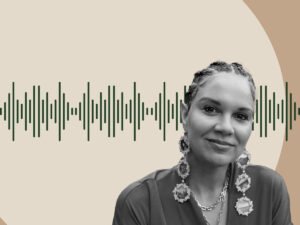Released on May 21, 2020. Download the webinar slides here. (Here’s the extended slide deck, including social accounting resources.)
Since the beginning of March, the COVID epidemic has ravaged the United States, both in terms of loss of life—with deaths nationwide passing the 60,000-mark last month—and the loss of over 30 million jobs. Preliminary federal mortality data indicate that people of color are dying in disproportionate numbers. In two months, so much has changed in the United States, and at NPQ, we thought we would interrupt our usual focus on individual communities to take stock and host a conversation on systems change, COVID-19, nonprofits, and the economy.
Sign up for our free newsletters
Subscribe to NPQ's newsletters to have our top stories delivered directly to your inbox.
By signing up, you agree to our privacy policy and terms of use, and to receive messages from NPQ and our partners.
In this webinar, we explore how nonprofits and social movements are navigating this moment to build the foundation for lasting economic systems change. For this conversation, NPQ features three members of our economic justice advisory committee:
- Elizabeth Castillo is an assistant professor of leadership and interdisciplinary studies at Arizona State University and a regular contributing author on economic justice issues for NPQ.
- Will Cordery is an advisor with Leverage Philanthropic Partners and has devoted his career to increasing justice by building power for those society has pushed to the margins, including work with Black workers centers across the United States.
- Camille Kerr is founder and principal of Upside Down Consulting in Chicago. A respected worker ownership expert, one focus of her current work is food justice organizing in Chicago centered around a worker-owned food service cooperative known as ChiFresh Kitchen.
This webinar explores:
- Tools for understanding the moment that we are in.
- Lessons learned on the ground from Black worker center organizing and worker co-op organizing in communities.
- How to move from a service orientation to an orientation that builds economic power.
- Identifying the infrastructure that reinforces community self-reliance.
- Ways to translate an economic justice vision into policy change.
- Tensions in movements between immediate needs and long-term strategy.
- Highlighting elements of an emerging post-pandemic economic justice vision.
Additional Resources:
- Webinar slides
- Extended slide deck, including Social Accounting Resources
- Oscar Perry Abello, “Formerly Incarcerated Women Launch Worker-Owned Food Business During COVID-19,” Next City, May 14, 2020.
- Gar Alperovitz, Emily Kawano, Repa Mehka, and Steve Dubb, “Economic Justice and System Change: How Should Nonprofits Respond?” webinar, Propel Nonprofits and Minnesota Council of Nonprofits, April 14, 2020.
- Steve Dubb, “Are We Ready Yet? The Need for a National Direction,” NPQ, May 6, 2020.
- Karen Kahn, “Nursing Home System Fail: 25,000 COVID-19 Deaths…and Counting,” NPQ, May 12, 2020













